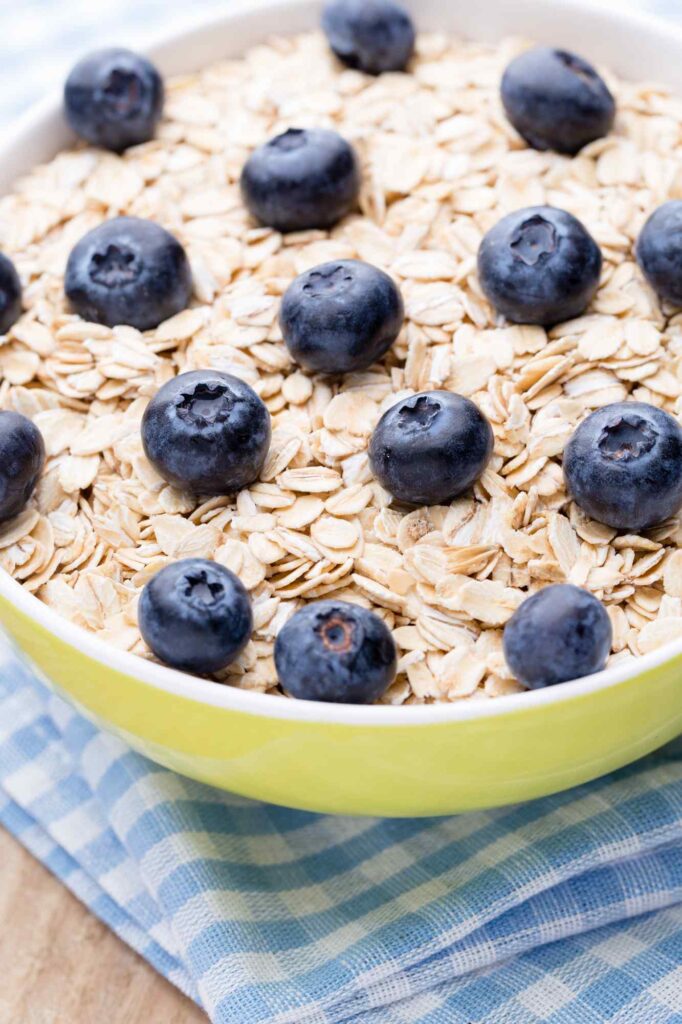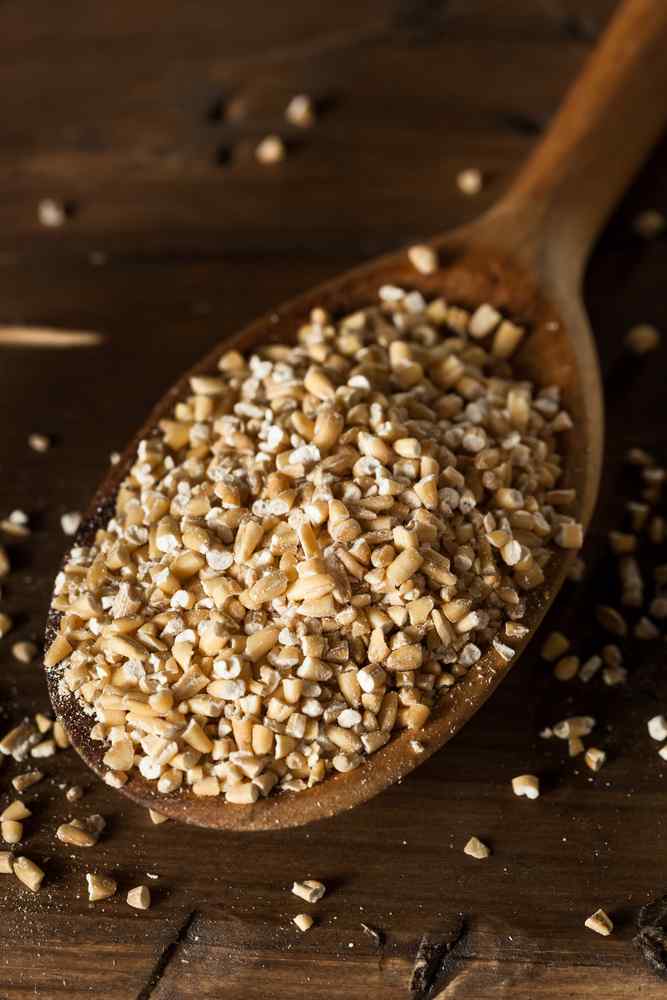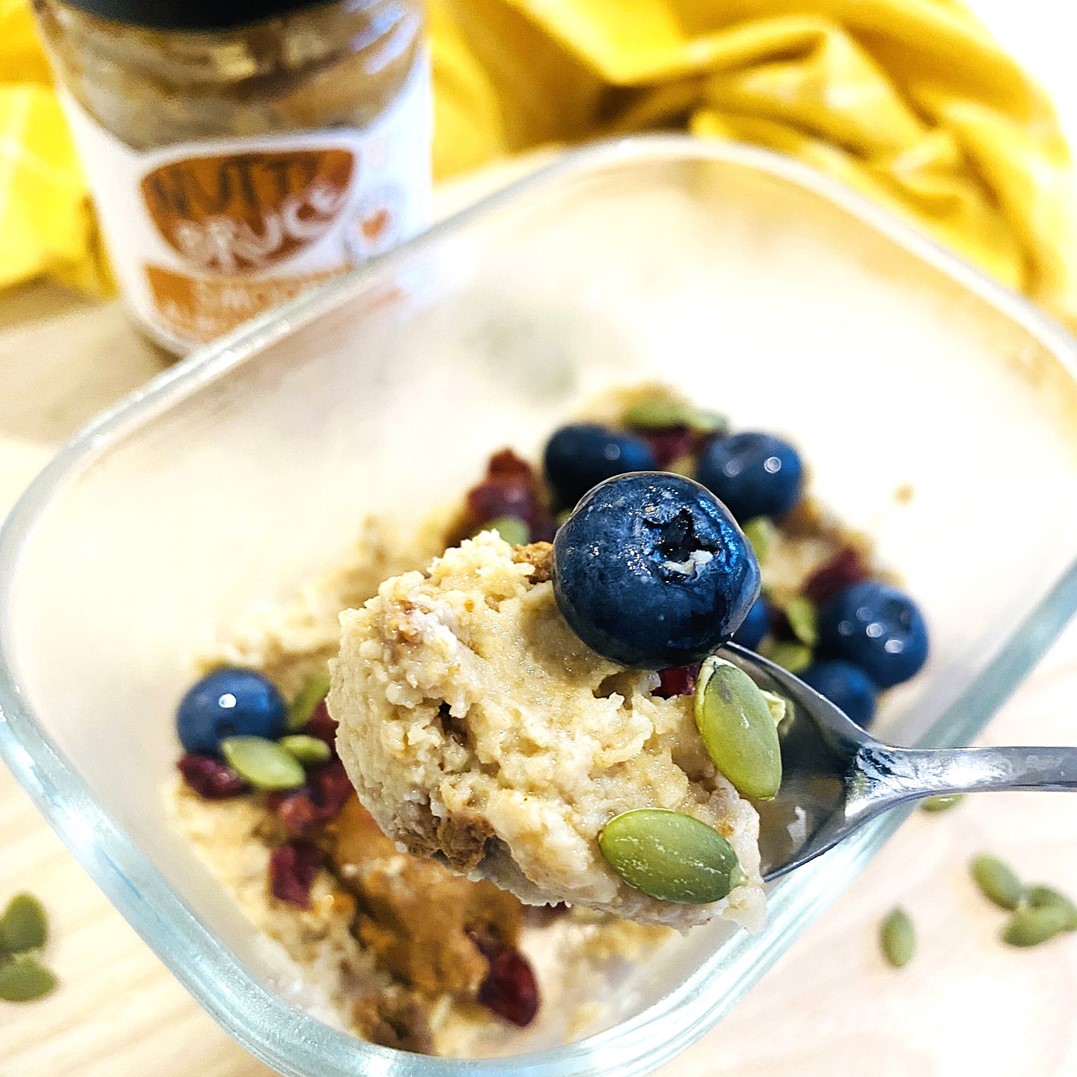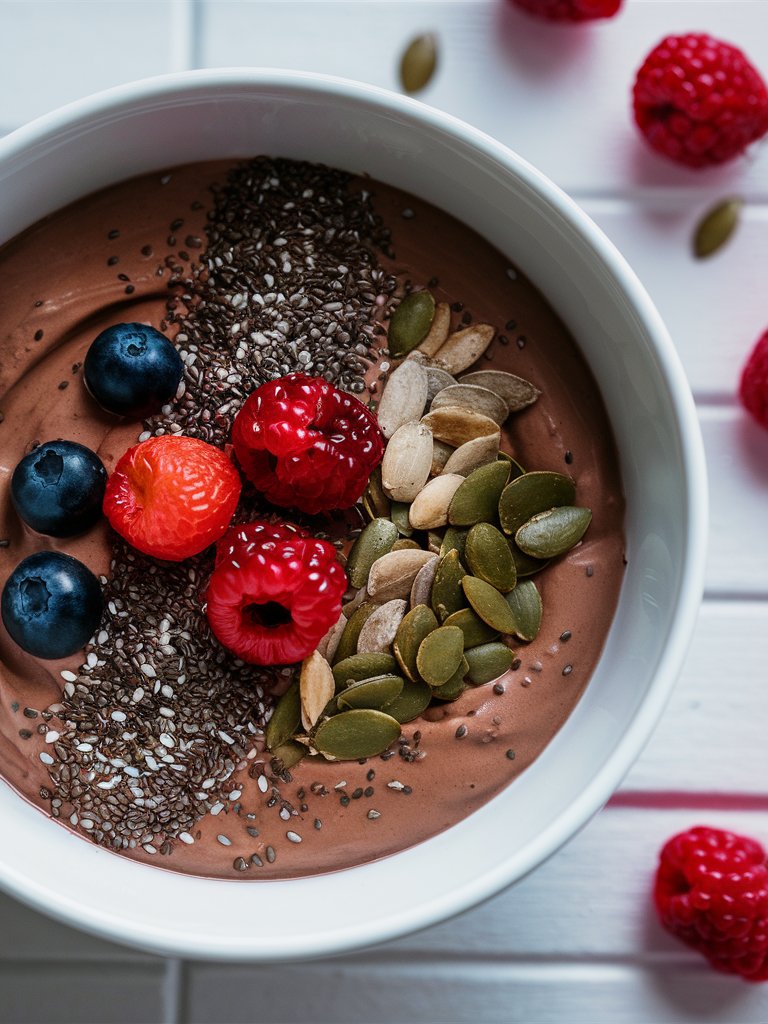Is Overnight Oats Good for PCOS? My Blood Glucose Test Results
When it comes to managing Polycystic Ovary Syndrome (PCOS), diet plays a crucial role. Is Overnight Oats Good for PCOS? PCOS is a common hormonal disorder that affects individuals of reproductive age, and it can bring a range of symptoms, including irregular periods, fertility challenges, acne, and even insulin resistance.
In this blog post, we will explore the relationship between PCOS and insulin resistance and delve into the potential benefits of incorporating overnight oats into a PCOS-friendly diet.

*This post contains affiliate links*
What is PCOS?
Polycystic Ovary Syndrome, commonly known as PCOS, is a complex hormonal condition that affects millions of women worldwide. It’s characterized by the presence of small cysts on the ovaries, irregular menstrual cycles, and elevated levels of male hormones (androgens), which can lead to various symptoms, such as:
- Irregular periods or absent periods
- Excessive hair growth (hirsutism)
- Acne
- Weight gain or difficulty losing weight
- Mood swings
- Insulin resistance
- Fertility issues
The exact cause of PCOS is still under investigation, but hormonal imbalances, genetics, and insulin resistance are known to be contributing factors.
In my case, my PCOS is derived from insulin resistance, and that’s why I started this website, to help share my diet and give you some more information on which foods caused the most sugar spikes for me.
During the course of the year, I will share more and more about these tests.
What Does Insulin Have to Do with PCOS?
Insulin, a hormone produced by the pancreas, plays a significant role in regulating blood sugar levels. It helps cells absorb glucose from the bloodstream for energy. In individuals with PCOS, insulin levels may be elevated. This increase in insulin can lead to a condition known as insulin resistance.
Insulin Resistance and PCOS
Insulin resistance occurs when the body’s cells don’t respond efficiently to insulin, leading to elevated blood sugar levels. To compensate, the pancreas produces even more insulin, resulting in higher insulin levels in the bloodstream. This can trigger a cascade of effects:
- Weight Gain: Increased insulin levels can promote weight gain, especially around the abdomen.
- Hormonal Imbalances: Higher insulin levels can also stimulate the ovaries to produce more androgens, exacerbating PCOS symptoms.
- Risk of Diabetes: Insulin resistance is a risk factor for type 2 diabetes. Many women with PCOS have an increased risk of developing diabetes.
- Cardiovascular Disease: Elevated insulin levels are associated with cardiovascular risk factors, such as high blood pressure and high LDL cholesterol levels, which can increase the risk of heart disease.
Given these potential complications, managing insulin resistance is crucial for women with PCOS.
The Carb Count in Oats
Oats are a well-known source of carbohydrates, and many people with insulin resistance or PCOS are cautious about their carbohydrate intake.

However, not all carbohydrates are created equal. Oats are considered whole grains, and they contain a type of carbohydrate called complex carbohydrates.
Complex carbohydrates are digested more slowly, resulting in a gradual increase in blood sugar levels. This makes oats a good choice for those concerned about managing blood sugar.
However, not in all cases. You will see from my results below, that the rolled oats variety did NOT keep my blood sugar steady, in fact for years, I had been eating rolled oats for breakfast. I did not realise that my issue in the morning was that blood sugar spike. I will share more on that below.
Oats also contain fiber, both soluble and insoluble. Soluble fiber helps slow down the absorption of carbohydrates, while insoluble fiber promotes digestive health. So, a different variety of oats, like steel cut oats for example, can give us a more steady rise instead of a spike.
Is Steel Cut Oats Better for Insulin Resistance?
When choosing oats for insulin resistance, it’s important to consider the type of oats. While all oats are nutritious, steel-cut oats are often recommended for their lower glycemic index.
I use this brand of steel cut oats. It’s my favorite brand because it’s the cleanest.
The glycemic index (GI) measures how quickly a food raises blood sugar levels. Foods with a lower GI cause a slower and more controlled increase in blood sugar, making them suitable for those with insulin resistance.

Steel-cut oats have a lower GI compared to instant oats or quick oats, which are more processed and can lead to a faster rise in blood sugar. Incorporating steel-cut oats into your diet may help manage blood sugar levels more effectively.
The Best Way to Eat Oats for Insulin Resistance
To maximize the benefits of oats while managing insulin resistance, here are some tips:
- Choose Whole Oats: Opt for whole oats, such as steel-cut oats or old-fashioned rolled oats, over highly processed instant oats. These varieties have a lower glycemic index.
- Control Portion Sizes: Pay attention to portion sizes. A 1/2 to 1-cup serving of cooked oats is generally suitable for most individuals.
- Add Protein: Including a source of protein, such as Greek yogurt or protein powder, with your oats can further stabilize blood sugar levels.
- Healthy Fats: Incorporate healthy fats like nuts, seeds, or a drizzle of peanut butter. These fats can slow down the digestion of carbohydrates.
- Avoid Excessive Sugar: Minimize added sugars in your oatmeal. Consider using natural sweeteners like a drizzle of maple syrup or a sprinkle of cinnamon.
My Blood Sugar Glucose Tests After Eating Oats
To shed light on the impact of oats on blood sugar levels, I conducted some personal tests after consuming a typical oatmeal breakfast.
Using a specified blood glucose testing kit is your best bet, I did try a CGM, but it wasn’t as accurate as this.
I measured my blood sugar before eating, immediately after eating, and then at intervals of 30 minutes, one hour, and two hours after the meal. Here are the results:
- Before Eating: 84 mg/dL
- Immediately After Eating: 95 mg/dL
- 30 Minutes After Eating: 112 mg/dL
- 1 Hour After Eating: 142 mg/dL
- 2 Hours After Eating: 137 mg/dL
These results demonstrate a moderate increase in blood sugar immediately after eating oats, followed by hardly any movement downwards even two hours after the meal. This indicates that oats have a relatively big impact on blood sugar levels and must be eaten with caution for individuals with insulin resistance.
*Your results may vastly vary from mine.
Is Overnight Oats Good for PCOS?
Now, let’s dive into the heart of the matter: Are overnight oats a good choice for individuals with PCOS and insulin resistance? The answer is a maybe.
If you opt for steel cut oats, it’s a better bet because:
- Controlled Blood Sugar: The slow-digesting properties of steel cut oats, particularly steel-cut or old-fashioned oats, help maintain steady blood sugar levels, which is vital for individuals with insulin resistance.
- Fiber Benefits: Oats are rich in fiber, which supports digestive health and provides a feeling of fullness. This can be especially helpful for weight management, a common concern for those with PCOS.
- Nutrient Content: Oats offer a range of essential nutrients, including vitamins, minerals, and antioxidants. They are a great addition to a PCOS-friendly breakfast.
- Versatility: Overnight oats are highly customizable. You can tailor your overnight oats to include additional ingredients that are beneficial for individuals with PCOS, such as Greek yogurt for protein and healthy fats like chia seeds or nuts.
- Meal Prep: Overnight oats are perfect for meal prep. You can prepare them on a Sunday night and have several servings ready for the week, saving time and ensuring a healthy breakfast option.
- Balanced Diet: Including oats as part of a balanced diet that incorporates protein, healthy fats, and a variety of nutrients can be a positive step in managing the symptoms of PCOS.
- Heart Health: Oats are known for their potential to lower LDL cholesterol levels, which is a risk factor for cardiovascular disease. This is particularly important for women with PCOS, as they may be at an increased risk of heart disease.
Incorporating Oats into a Healthy PCOS Diet
If you were to actually have some oats (let’s face it, we can’t all be one hundred percent perfect). To make the most of overnight oats in a PCOS-friendly diet, consider the following guidelines:
- Use the Right Oats: Opt for steel-cut or old-fashioned oats for a lower glycemic index. Or cook the steel cut beforehand.
- Protein: Include a source of protein in your overnight oats, such as Greek yogurt, to help stabilize blood sugar levels.
- Healthy Fats: Incorporate healthy fats like chia seeds, flaxseeds, nuts, or a drizzle of nut butter for added satiety.
- Fresh Fruit: Add fresh fruit, such as berries or sliced banana, for natural sweetness and additional fiber.
- Portion Control: Pay attention to portion sizes. An appropriate serving of overnight oats can help manage calorie intake.
- Balanced Diet: Remember that a healthy PCOS diet is about balance. Make sure your overall diet is rich in a variety of nutrient-dense foods.
- Meal Prep: Take advantage of the convenience of meal prep by preparing several servings of overnight oats in advance.
The relationship between PCOS and insulin resistance is a complex one, but dietary choices can play a pivotal role in managing the condition. To best measure what is impacting your insulin, I recommend that you test before your meal, 1 hour after your meal and then 2 hours after.
Oats, particularly steel-cut or old-fashioned oats, can be a valuable addition to a PCOS-friendly diet.
With their controlled impact on blood sugar levels, high fiber content, and nutrient profile, overnight oats offer a convenient and nutritious option for individuals with PCOS.
By customizing your overnight oats to include protein, healthy fats, and fresh fruit, you can enjoy a delicious and satisfying breakfast that supports your health and well-being.
Remember to consult with a healthcare professional or registered dietitian for personalized guidance on managing PCOS through your diet and lifestyle. I am sharing what I have learned here myself, diet and lifestyle is so important.






